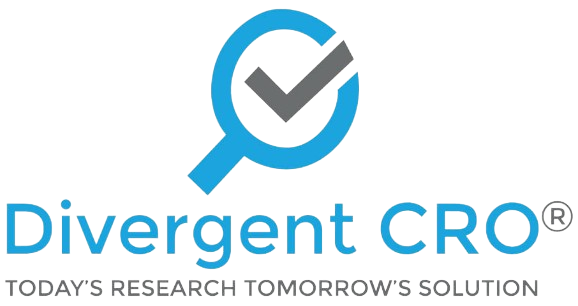Every mom deserves comprehensive healthcare to maintain her well-being and support her through motherhood. Regular health check-ups are vital to ensure she is physically and mentally prepared to nurture her family. This article outlines various health aspects that every mom should monitor regularly, from essential screenings to mental health support.
Key Takeaways
- Regular health screenings are crucial for early detection of potential health issues.
- Postpartum care is essential for monitoring recovery and managing health after pregnancy.
- Heart health should be monitored closely as mothers may face increased risks of heart disease.
- Nutrition and weight management are key for maintaining overall health during and after pregnancy.
- Mental health support and community resources are vital for a mother’s well-being.
Essential Health Screenings for Moms

Pap Smear
Regular Pap smears are crucial for early detection of cervical cancer. Women should start getting Pap smears at the age of 21 and continue every three years if results are normal. This simple test involves collecting cells from the cervix to check for abnormalities.
Bone Density Test
Bone density tests are recommended for women, particularly those post-menopause, to assess the risk of osteoporosis. This test helps in determining the strength of bones and the likelihood of fractures.
Vitamin D Levels
Checking vitamin D levels is essential for bone health and overall immune function. Low levels of vitamin D can lead to bone softening and other health issues. It is advisable for moms to get their vitamin D levels checked during routine health screenings.
Regular health screenings can significantly contribute to a mom’s long-term health and well-being.
Navigating Postpartum Care

Importance of Postpartum Checkups
Postpartum checkups are crucial as they ensure that you are recovering well from labor and birth. Get a complete postpartum checkup no later than 12 weeks after giving birth. This checkup is vital because new moms are at risk of serious and sometimes life-threatening health complications.
What to Expect During a Checkup
During your postpartum checkup, your provider will assess your physical and emotional recovery. It’s important to share any concerns you might have about your health or new responsibilities. Feelings of tiredness and stress are common, but it’s crucial to discuss any persistent sadness or worry as these could be signs of postpartum depression.
Managing Health After Pregnancy
After pregnancy, managing your health involves more than just physical recovery. It includes adjusting to life with a newborn and ensuring you have the right support systems in place. A postpartum care plan, ideally created during pregnancy, can help prepare you for this transition. This plan should cover all aspects of your health and wellness, ensuring a smooth adjustment to your new role as a mom.
Heart Health for Mothers

Routine Heart Checkups
Regular heart checkups are crucial for monitoring cardiovascular health, especially for mothers who face increased stress and physical changes post-pregnancy. These checkups can help detect issues early, when they are most treatable.
Risk Factors for Heart Disease
Understanding and managing risk factors such as high blood pressure, cholesterol levels, and obesity is essential. Lifestyle choices play a significant role in heart health, and adjusting diet and exercise routines can greatly reduce risks.
Preventive Measures
To safeguard against heart disease, mothers should adopt a heart-healthy lifestyle that includes balanced nutrition and regular physical activity. Emphasizing the importance of ‘low salt’ or ‘low sodium‘ diets and reducing trans fat intake are effective strategies for maintaining heart health.
Nutrition and Weight Management

Balanced Diet Essentials
A balanced diet is crucial for maintaining optimal health, especially for moms who need to manage both their health and that of their families. Incorporate a variety of food groups including fruits, vegetables, proteins, and whole grains to ensure a comprehensive intake of nutrients.
Postpartum Weight Loss
Postpartum weight loss can be a significant concern for many new mothers. It’s important to approach weight loss with a healthy mindset and realistic goals. Strategies such as maintaining a balanced diet and incorporating regular physical activity can be effective. Remember, every mom’s journey is unique.
Nutritional Supplements
While a balanced diet is the foundation of good health, certain nutritional supplements can be beneficial, especially when natural nutrient intake might not be sufficient. Common supplements include iron, calcium, and vitamin D. Consult with a healthcare provider to tailor supplements to your specific needs.
Mental Well-being and Support

Recognizing Postpartum Depression
Postpartum depression (PPD) is a mood disorder that can cause significant emotional distress for new mothers. It is crucial to recognize the symptoms early and seek professional help. Feelings of sadness or worry that last for a long time may indicate PPD, and discussing these feelings with a healthcare provider is essential.
Stress Management Techniques
Managing stress effectively is vital for maintaining mental well-being. Techniques such as mindfulness, regular exercise, and adequate sleep can greatly reduce stress levels. It’s important to integrate these practices into daily life to ensure long-term mental health stability.
Support Networks and Resources
Building a strong support network is key to navigating the challenges of motherhood. Resources such as the National Maternal Mental Health Hotline provide confidential help and are available 24/7. Engaging with community support groups and online forums can also offer valuable advice and emotional support.
Bone Health and Joint Care

Importance of Calcium
Calcium is crucial for maintaining strong bones and preventing osteoporosis. Ensure a daily intake of calcium through dairy products, leafy greens, or supplements.
Regular Exercise for Joint Health
Regular exercise is essential for maintaining joint health and mobility. Activities like walking, swimming, or yoga can help keep joints flexible and strong.
Screening for Osteoporosis
Osteoporosis screenings are vital for early detection and management. Women, especially post-menopause, should consider regular bone density tests to monitor bone health.
Maintaining bone health is not just about adding more calcium to your diet; it’s also about regular screening and physical activity to ensure long-term mobility and strength.
Cancer Awareness and Prevention

Regular Mammograms
Regular mammograms are crucial for early detection of breast cancer, which significantly increases the chances of successful treatment. Women are advised to start routine mammograms at the age of 40, or earlier if they have a family history of breast cancer.
Skin Checks
Routine skin checks by a healthcare professional can help detect skin cancer early. It’s important to monitor any changes in the size, shape, or color of moles or other skin lesions.
HPV Vaccination
The HPV vaccination is recommended to prevent cervical and other types of cancers linked to the Human Papillomavirus. It is typically administered during adolescence but can be given up to age 45.
Prevention and early detection are key in managing the risk of cancer. Regular screenings and vaccinations are essential components of a proactive health strategy.
The Ultimate Pregnancy Checklist
Preparing for Baby
Preparing for a new baby involves more than just picking out a crib and cute outfits. It’s crucial to also focus on health and safety preparations, such as installing a car seat, baby-proofing the home, and scheduling regular prenatal checkups.
Postpartum Essentials
The first few weeks after childbirth are critical for both mother and baby. Ensure you have all necessary postpartum supplies like sanitary pads, comfortable clothing, and a support system in place to help you navigate this new phase of life.
Health Insurance and Coverage
Understanding your health insurance coverage is essential before and after pregnancy. Make sure you know what services are covered, including prenatal visits, delivery, and postnatal care. It’s also wise to inquire about adding your newborn to your health plan.
Note: Always double-check your hospital bag to ensure you have everything needed for delivery day.
Join the Movement: Mom’s Health

Community Support
Joining a community of like-minded individuals can significantly enhance your journey through motherhood. Engage with local and online groups where you can share experiences, seek advice, and gain support from fellow moms.
Health Events
Participate in health events specifically tailored for moms to learn about the latest health trends, preventive measures, and treatments. These events often provide valuable resources and networking opportunities.
Inspiring Stories
Hearing about other moms’ experiences can be incredibly motivating. Share and listen to inspiring stories within the community to foster a sense of connection and empowerment among mothers.
Conclusion
In conclusion, regular health check-ups are essential for every mom to ensure long-term health and vitality. From prenatal to postpartum care, prioritizing medical tests like Pap smears and attending all postpartum checkups can significantly impact a mother’s well-being. These check-ups not only help in early detection and management of potential health issues but also provide a platform for moms to discuss any concerns with their healthcare provider. Remember, being proactive about your health is a key step towards a healthy and fulfilling life as a mom.
Frequently Asked Questions
What is a Pap smear and why is it important for moms?
A Pap smear is a medical test where the doctor gently swabs internally to collect cervical cells, which are later examined under a microscope. It’s crucial for moms to detect cervical cancer or other related health issues early.
What should I expect during a postpartum checkup?
During a postpartum checkup, expect a physical exam to ensure you’re recovering well from labor and birth. The healthcare provider will check for any complications or concerns and provide necessary care.
Why are postpartum checkups important?
Postpartum checkups are vital as they help monitor your recovery from childbirth and manage any complications. Nearly 40% of new moms experience serious health issues post-birth, making these checkups critical.
How often should mothers get heart checkups?
Mothers should have routine heart checkups to monitor risk factors for heart disease and ensure heart health, especially if there are pre-existing conditions or family history of heart issues.
What dietary considerations should moms have for bone health?
Moms should focus on a diet rich in calcium and vitamin D to support bone health. Regular exercise and bone density tests can also help maintain healthy bones and prevent osteoporosis.
What support is available for moms experiencing postpartum depression?
Moms experiencing postpartum depression can seek support from healthcare providers, mental health professionals, and community support groups. Stress management techniques and a strong support network are essential.




2 Comments
ibomma
What i dont understood is in reality how youre now not really a lot more smartlyfavored than you might be now Youre very intelligent You understand therefore significantly in terms of this topic produced me personally believe it from a lot of numerous angles Its like women and men are not interested except it is one thing to accomplish with Woman gaga Your own stuffs outstanding Always care for it up
admin
Thank you always happy to serve 🙂